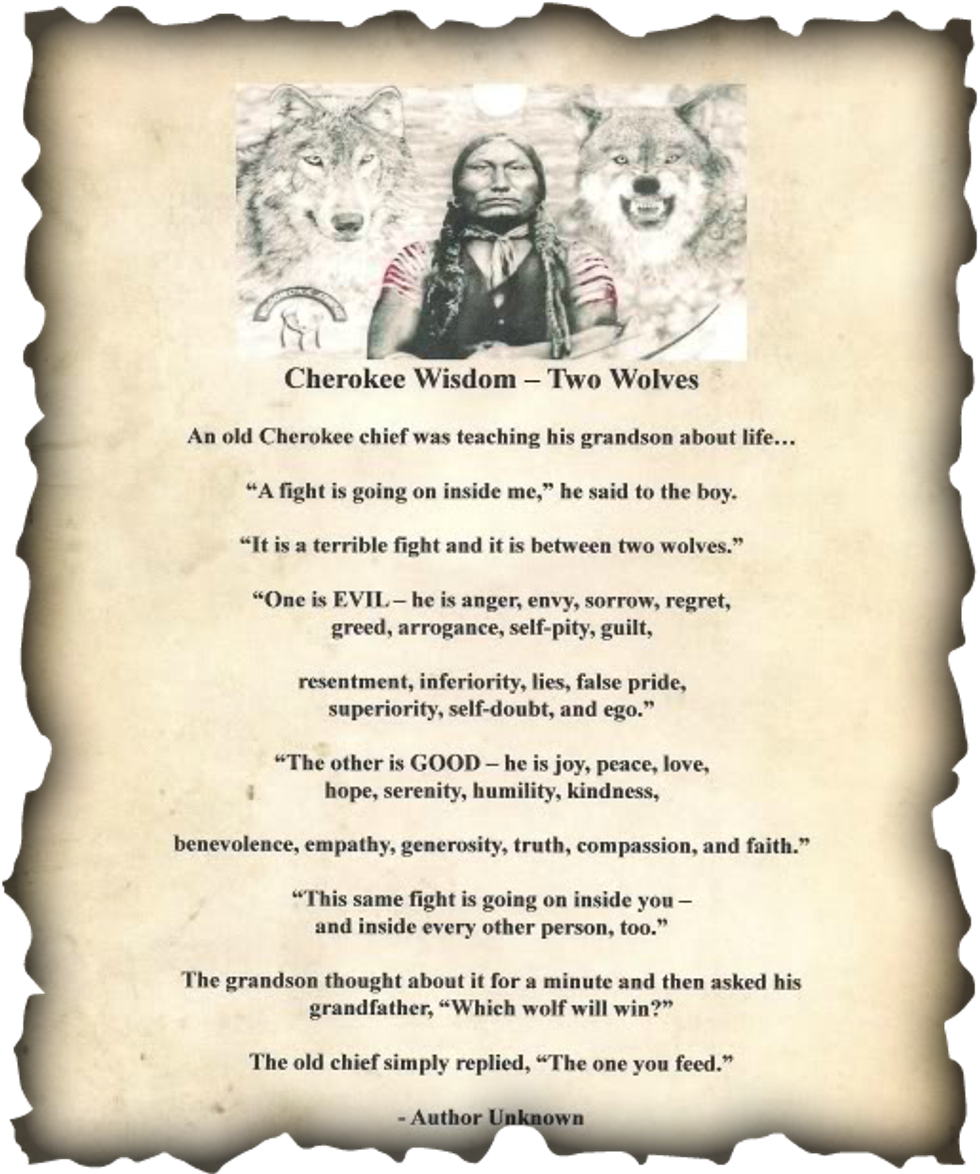Many life lessons can be learned from various cultures around the world. From legends told by the campfire to tales told at the dinner table, something can be taken away from most of them. Below is a story about two wolves told by a Cherokee elder.
As you read for yourself, you can see that the elder taught his grandson a great lesson he can use in his everyday life. The same goes for us. All of us have had to make choices in our life on how to respond to a situation or how to carry ourselves in a tough time. Bad things happen in life sometimes but, unfortunately, that is inevitable and is part of life. As humans, we cannot control many events that occur. What we can control is the way we respond and the way we act. This can become evident in the things we say, do, think, and believe.
As a fellow college student, I am able to understand that college, and life in general, is not easy. Not doing so well on a test, accidentally locking your keys in your car (or maybe even losing them), and having to wake up for 8 a.m. classes are not-so-fun things to have to go through. I am positive no person in their right mind loves for those events to happen. The difference between people revolves around how they handle that situation. Some may get down and out, angry, frustrated, annoyed, and much more. There is absolutely nothing wrong with that. Some people may just deal with the situation and go on about their day, not letting it ruin the rest of what could be a wonderful day.
This tale told by the Cherokee elder can be used in daily life for just about everyone. The elder is trying to say that our life will be a product of the emotions and the feelings that we let consume us, whether that be for the better or the worse. The beauty of this tale lies in its universal use. Anything from spilling coffee on yourself to the most tragic events in life can be factored into this story. I consider myself not only an optimist, but a realist. It is real and true that if you let positive emotions manifest instead of negative ones, a situation will become much easier. It is important to see the good in everything. No matter how terrible a situation is, something can be learned from it that benefits you in a positive way.
Bad situations are not the only ways to use this story. We can use it as a way of seeing each day as one we were not promised nor have any right to. I can't disagree that complaining can help release negative energy that has built up, but letting the "bad wolf" control our life is something we can prevent.
Will you choose the evil wolf that represents the emotions that foster and tear us down? Or will you choose the good wolf that represents the emotions that signify the beauty in life? It's your choice.

















